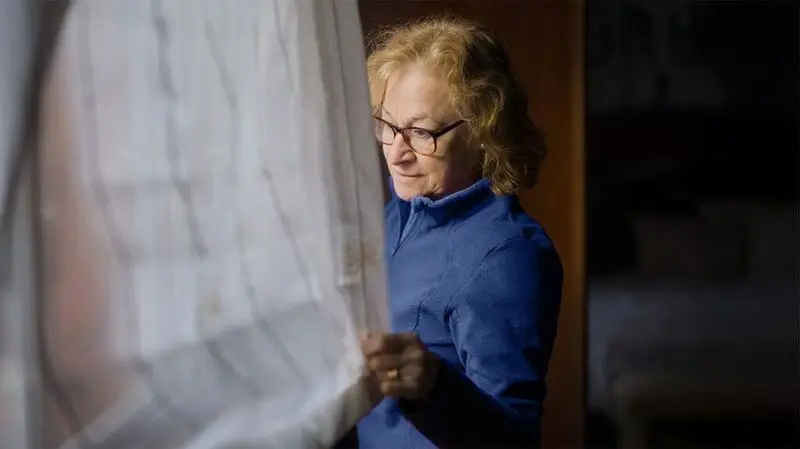
- A cohort study led by researchers from Samsung Medical Center in South Korea examined the prevalence of Alzheimer’s disease in breast cancer survivors.
- The scientists compared the prevalence of Alzheimer’s to the different methods of cancer treatment and also to a group of healthy women.
- The researchers found that breast cancer survivors treated with radiation therapy had an 8% reduced risk of developing Alzheimer’s in the short term.
Breast cancer is one of the most common cancers among women, and according to the
At the same time, Alzheimer’s disease is another public health challenge. According to the Alzheimer’s Association, it affects an estimated seven million people in the United States alone.
The researchers noted that a common concern with cancer treatments is that they may cause long-term cognitive side effects, so they explored whether breast cancer treatments impact the chances of developing Alzheimer’s.
The researchers published their findings in
Breast cancer has a 5-year relative
Localized breast cancer is easier to treat, while metastatic breast cancer is more challenging and requires more aggressive therapy.
Some ways doctors treat breast cancer include:
- surgery such as a lumpectomy or mastectomy
- radiation therapy (also known as radiotherapy)
- hormone (endocrine) therapy
- targeted therapy
- immunotherapy.
Even early-stage breast cancer often involves radiation therapy as part of the treatment. Around
These cancer treatments can cause some serious side effects; radiation therapy can cause hair loss, fatigue, and cognitive impairment. Some side effects of chemotherapy include fatigue, neuropathy, and cognitive changes (chemo brain).
The scientists involved in the new study utilized data from the Korean National Health Insurance Service to examine Alzheimer’s risk in breast cancer survivors. They included a group of around 70,000 breast cancer survivors and a control group of around 180,000 women.
The participants underwent cancer surgery and treatment between 2010 and 2016; the researchers used an average of 7 years of follow-up data for the breast cancer survivors.
The most common cancer treatment for the group was radiation, which 71.7% of the group received. More than half of the women received chemotherapy drugs, and nearly half received hormone treatments.
During the follow-up period, 1,229 women in the breast cancer group received an Alzheimer’s diagnosis.
When compared to the control group, women who had undergone breast cancer treatment showed an 8% lower risk of developing Alzheimer’s.
This risk reduction was most pronounced among women who underwent radiation therapy, which made the researchers believe that radiation may have been responsible for the lowered risk of Alzheimer’s.
However, the scientists observed that this protective effect went away with time. “Based on these findings, we hypothesize that the risk of [Alzheimer’s dementia] could be lowered shortly after cancer treatment but may equalize as the survival period increases,” the authors write.
While radiation therapy showed a potential protective benefit, the study found no significant impact on Alzheimer’s risk from other treatments.
The authors emphasize the need for further research, noting that the maximum follow-up period in this study was just 11 years, which was potentially too short to fully understand the long-term relationship between breast cancer treatments and Alzheimer’s risk.
Jon Stewart Hao Dy, MD, a board-certified neurologist affiliated with the Philippines Neurological Association, told Medical News Today that he did not find the study findings surprising.
Dy, who was not involved in the current study, told us that:
“When a patient is diagnosed with breast cancer and undergoes the necessary evidence-based treatment, including surgery, chemotherapy, and radiotherapy, they are likely to receive adequate and prompt treatment to control their other comorbidities and to prevent the long-term risk of chemotherapy-induced cognitive dysfunction.”
He also touched on why radiation therapy may have provided short-term benefit against developing Alzheimer’s.
“The biological mechanisms behind this lower short-term risk are the potential of radiotherapy to reduce astrogliosis and microgliosis and have anti-inflammatory and neuroprotective effects,” explained Dy.
Dy said that people who are looking to reduce their long-term risk of developing Alzheimer’s should focus on controlling vascular risk factors such as blood pressure and diabetes.
Rizwan Bashir, MD, a board-certified neurologist at AICA Orthopedics, likewise not involved in the study, told MNT that the findings indicating that radiation potentially provided short-term benefit were “fascinating.”
“While the results are preliminary and warrant cautious interpretation, they open the door to meaningful hypotheses about underlying mechanisms,” said Bashir.
Bashir suggested that radiation therapy might influence the immune system or interfere with the formation of amyloid plaques, both of which are associated with Alzheimer’s pathology.
“Additionally, estrogen plays a complex role in both cancer biology and neurodegeneration,” shared Bashir. “Lowering estrogen levels through hormone therapy may, paradoxically, reduce Alzheimer’s risk in some patients.”
Bashir emphasized that more long-term research is needed in this area.
“This study is encouraging in that it challenges assumptions and suggests that certain cancer-related treatments may influence dementia risk in unexpected ways,” said Bashir. “More longitudinal research will be critical in clarifying these associations.”





